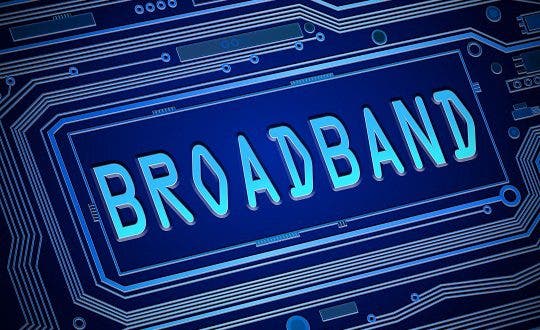The Federal Communications Commission (FCC) is considering adjusting the US broadband standards, which could have a huge impact on internet policies. According to 10Tv, the current definition of “high-speed” internet is a download speed of 25 Mbps and an upload speed of 3 Mbps. However, FCC Commissioner, Jessica Rosenworcel has proposed a new minimum standard of 100 Mbps download and 20 Mbps upload speeds.

State of Broadband in the US & Proposed Changes
Before delving into the proposed changes, it’s good to understand the current state of broadband in the US. According to a report by the FCC, as of 2021, 14.5 million Americans lack access to fixed broadband at speeds of at least 25 Mbps/3 Mbps. This is a big issue, as access to high-speed internet is crucial for many aspects of modern life. This includes work, school, health care and so on.
On the proposed changes, Commissioner Rosenworcel’s proposal would set a new minimum standard for broadband at download speeds of 100 Mbps and upload speeds of 20 Mbps. This would be a big increase from the current standard of 25 Mbps/3 Mbps. It also aims to ensure that all Americans have access to high-speed internet.
Implications for Users, ISPs & FCC
Users
If the proposal is adopted, it would mean that users would have access to faster internet speeds. This would enable them to stream high-quality video, download large files, and engage in other bandwidth-intensive activities easily. However, it’s worth noting that not all users may need or want such high speeds. Some users may be content with the current standard.
ISPs
The proposed changes could have significant implications for ISPs. In order to meet the new standard, ISPs may need to invest in new infrastructure, such as fiber-optic cables, which can be expensive. This could lead to higher costs for consumers, as ISPs may need to pass on these costs to their customers. However, it’s also possible that increased competition among ISPs could lead to lower prices for consumers.
FCC
According to Cooley, if the proposal is adopted, it would be the first update to the broadband standards in many years. This could have a significant impact on FCC internet policies, as the agency would need to adjust its regulations to reflect the new standard. The FCC would also need to ensure that ISPs are complying with the new standard and that all Americans have access to high-speed internet.
Final Words
The FCC’s proposal to adjust the US broadband standards to a minimum of 100 Mbps download and 20 Mbps upload speeds could have significant implications for consumers, ISPs, and the FCC itself. While the proposal aims to ensure that all Americans have access to high-speed internet, it could also lead to higher costs for consumers and require significant investments from ISPs. Ultimately, it remains to be seen whether the proposal will be adopted and what the long-term effects will be.





